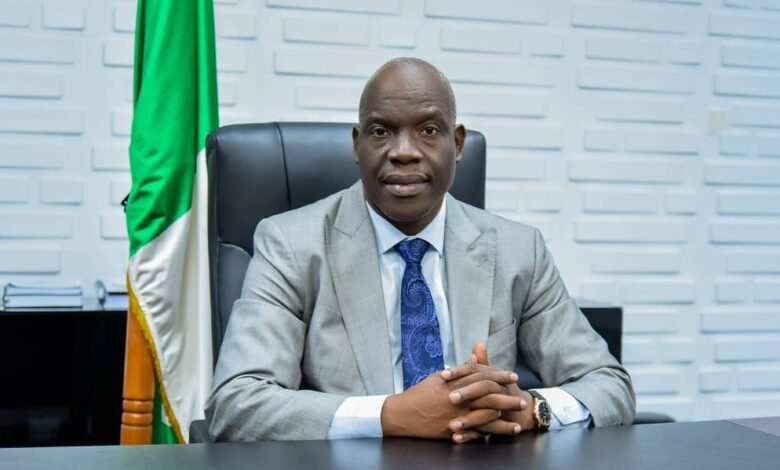Reasons Why Nigeria Should Complete PIA Regulations- Making Processes – NUPRC Chief

The chief executive officer of the Nigerian Upstream Petroleum Regulatory Commission (NUPRC), Gbenga Komolafe has given reasons why it is compelling for Nigeria as a nation to conclude the regulations-making process of the oil and gas industry.
According to him, it is necessary to prepare the country against the impact of energy transition, while taking advantage of the oil and gas supply gap resulting from the current Russia-Ukraine conflict.
To achieve these, a series of consultations with major players and interest groups within the oil and gas industry has begun in Abuja. Its to see how the various regulations that would guide the industry under the Petroleum Industry Act could be fine-tuned and made acceptable to all stakeholders.
The consultation which started on Wednesday under the auspices of the Nigerian Upstream Petroleum Regulatory Commission (NUPRC) would be on some key regulations to prepare the industry for effective implementation of the PIA in line with the Commission’s focus on prioritising regulations to meet set timelines in the draft law.
Participants at the event would use the opportunity to finalise the decision on the 2020 marginal oil field bid round through the issuance of the petroleum prospecting license (PPL) in line with Section 94(2) of the PIA.
Other regulations that would be reviewed include the Nigerian Upstream Fee and Rent Regulations, Petroleum Licensing Round Regulations, Domestic Gas Delivery Obligations Regulations, Nigeria Conversion Regulations, Nigeria Royalty Regulations and the Nigeria Host Community (Commission) Regulations.
The draft regulations were prepared by NUPRC in conjunction with the Presidential Steering Committee (PSC) on the PIA, while the consultative forum was designed to harvest inputs and
During the opening phase, which would last for three days, participants were expected to tailor their engagements and discussions around issues dealing with royalty payments, oil and gas licensing rounds, fees and rentals, implementation of the host community fund in line with Section 235 of the PIA.
Also, participants would use the opportunity to finalise the decision on the 2020 marginal oil field bid round through issuance of the petroleum prospecting license (PPL) in line with Section 94(2) of the PIA.
Other regulations that would be reviewed include the Nigerian Upstream Fee and Rent Regulations, Petroleum Licensing Round Regulations, Domestic Gas Delivery Obligations Regulations, Nigeria Conversion Regulations, Nigeria Royalty Regulations and the Nigeria Host Community (Commission) Regulations.
The draft regulations were prepared by NUPRC in conjunction with the Presidential Steering Committee (PSC) on the PIA, while the consultative forum was designed to harvest inputs and considerations of oil and gas interest groups on the draft regulations for smooth implementation of the PIA.
Also Read: Why Oil and Gas Industry Is Not Attracting Investments – NUPRC
NUPRC Chief Executive, Gbenga Komolafe, while welcoming the participants explained that the consultative forum for regulations, was a statutory prescription and a critical milestone in the implementation of the PIA.
“For us as a law-abiding Regulator, and in compliance with the provisions of the PIA, this occasion is convened for stakeholders to make robust inputs and have discussions around the entire draft Regulations leading to finalising the Regulations for the Nigerian Upstream oil and gas industry in fulfilment of the provisions of the PIA,” he said.
Aside from the statutory imperative on the part of the Commission to have the Regulations finalised in time specific manner, he said there was also a compelling need for Nigeria as a nation to conclude the regulations-making process, to prepare the country against the impact of energy transition, while taking advantage of the oil and gas supply gap resulting from the current Russia-Ukraine conflict.
He observed that participants at the forum were a fair representation of the diverse interest groups in the Nigerian upstream oil and gas industry, consciously put together to ensure robust inputs and result-oriented discussions to finalize the regulations.
Komolafe expressed optimism that all grey areas in the draft regulation would receive adequate clarification, to give meaning to the intent of the PIA and their implementation more attractive to prospective and existing investors.
In attendance at the forum were the Chairmen of the Senate Committee on Upstream Petroleum Resources, Senate Committee on Host Communities, House Committee on Upstream Petroleum Resources, House Committee on Host Communities and some lawmakers.
Declaring the forum open earlier, the Minister of State for Petroleum Resources,Timipre Sylva, emphasised the need for effective regulations in the industry to harness the capacity of the PIA for global relevance.
For Nigeria to continue to be relevant on the global stage, particularly with the global quest for energy transition, Sylva said the country must have in place regulations capable of balancing her aspirations, in terms of the energy base load for Nigeria, and the global agenda.
The minister, who is also the chairman of the Production Sharing Contract (PSC) committee, said effective regulations would ensure Nigeria was not left behind in the quest for energy transition, while still harnessing her rich natural hydrocarbon reserves.
He expressed hope that the inputs from the various participants in the different fora would further clarify the provisions of the draft regulations and eventually firm up the final regulations for implementation.
The minister expressed hope that the regulations, when fully implemented, would help in the smooth take-off of the day-to-day operations of the NUPRC.
The government, he said, has a mandate to ensure sound management of the oil and gas sector, considering the key role the sector was playing in revenue generation for the country.
The PSC, Sylva noted, played a critical role in collaborating with the Commission to draft the first set of regulations for review.
The minister, therefore, called for more innovative ways towards fossil fuel exploration and exploitation in Nigeria, just as he decried the challenges posed by huge divestments from hydrocarbon explorations by oil majors in the past due to global energy transition.







